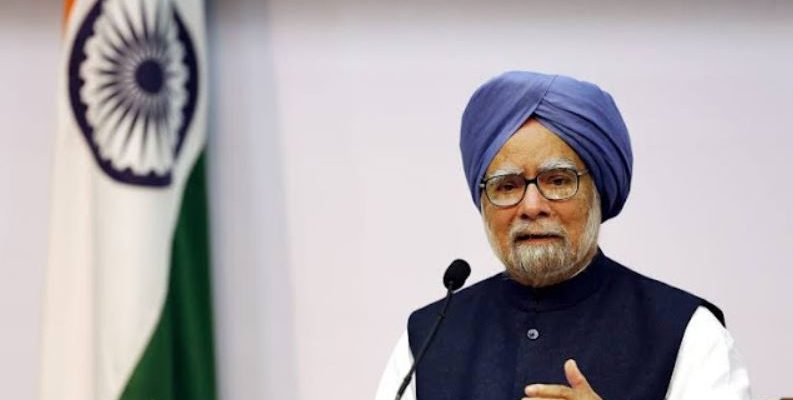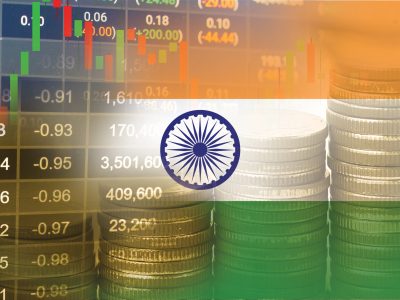
Dr Manmohan Singh, India’s 14th Prime Minister, passed away on Thursday, December 26, 2024, at the All India Institute of Medical Sciences (AIIMS) in Delhi. He was 92 years old.
A towering figure in India’s political and economic history, Singh’s life journey was one of remarkable intellect, dedication, and service.
Born on September 26, 1932, in Gah, a village in the Punjab province of undivided India (now in Pakistan), Singh rose from modest beginnings to leave an indelible mark on the world stage.
After completing his matriculation at Punjab University in 1948, he earned a bachelor’s degree in economics in 1952 and a master’s degree in 1954, both from Panjab University.
His academic brilliance won him a scholarship to the University of Cambridge, where he graduated with first-class honors in the Economic Tripos in 1957.
He later obtained a DPhil in economics from Nuffield College, Oxford, in 1962, with a dissertation critically examining India’s trade policies.
In this article, we detail how an atypical politician like Singh came to become one of India’s most consequential leaders.
Tributes pour in from around the world
From politicians to movie stars, people from around the world paid their respects to Singh.
Indian Prime Minister Narendra Modi expressed condolences, highlighting Singh’s journey from humble beginnings to becoming a respected economist, Finance Minister, and Prime Minister.
He praised Dr. Singh’s contributions to economic policy, his insightful parliamentary interventions, and his efforts to improve lives.
India mourns the loss of one of its most distinguished leaders, Dr. Manmohan Singh Ji. Rising from humble origins, he rose to become a respected economist. He served in various government positions as well, including as Finance Minister, leaving a strong imprint on our economic…
Former Maldivian President Abdulla Shahid and Former Afghan President Hamid Karzai also shared their condolences.
#India has lost one of its most illustrious sons. #Dr_Manmohan_Singh was an unwavering ally and friend to the people of #Afghanistan. I profoundly mourn his passing and extend my deepest condolences to his family, the government, and the people of India.
May his soul find…
Deeply saddened to hear of the demise of former Prime Minister of India Dr Manmohan Singh.
I fondly recall his visit to the Maldives in 2011, where I, as then Speaker of Parliament, invited him to address a sitting of the Majlis – the first Head of State/Government to do so.…
Gautam Adani, one of India’s richest men also paid his respects to the former prime minister.
Deeply saddened by the passing of Dr Manmohan Singh. History will forever honour his pivotal role in the transformative 1991 reforms that reshaped India and opened its doors to the world. A rare leader who spoke softly but achieved monumental strides through his actions, Dr…
Indian filmstars Kapil Sharma and Anupam Kher paid tributes to the leader. Kher played the role of Singh in a feature film on the former prime minister’s life.
“India has lost one of its finest leaders today. Dr. Manmohan Singh, the architect of India’s economic reforms and a symbol of integrity and humility, leaves behind a legacy of progress and hope.
His wisdom, dedication, and vision transformed our nation. Rest in peace, Dr.…
Deeply saddened to know about the demise of former #PrimeMinister of India #DrManmohanSingh! Having studied him for more than a year for the movie #TheAccidentalPrimeMinister, it felt that I actually spent that much time with him. He was inherently a good man. Personally…
Manmohan Singh: the advisor for all seasons
Manmohan Singh’s early years as an advisor in politics laid the foundation for his rise as one of India’s most consequential leaders.
His transition from academia to government in 1971 was prompted by his appointment as economic advisor to the commerce ministry.
This move marked the beginning of a remarkable career as a trusted technocrat.
Though his stint at the commerce ministry was brief, it was eventful—Singh even threatened to resign when his principles clashed with Commerce Minister LN Mishra.
Intervention by PN Haksar, then a key aide to Indira Gandhi, led to Singh’s promotion to chief economic advisor in the finance ministry.
From 1972 to 1980, Singh worked under four finance ministers—YB Chavan, C Subramaniam, HM Patel, and Charan Singh—through periods of economic and political turbulence.
As an economic advisor and later economic affairs secretary, he was pivotal in steering policies during Indira Gandhi’s shift toward socialism, including her controversial bank nationalization.
Singh’s integrity and intellect earned him bipartisan respect, helping him navigate politically charged periods like the Emergency and the Janata government’s tenure.
Despite being close to Indira Gandhi, he survived regime changes, thanks partly to his friendships with key leaders like HM Patel.
Singh stood firm against external pressures, opposing questionable decisions such as permitting the Bank of Credit and Commerce International (BCCI) to open a branch in India.
The beginning of the rise
In the politically fluid late 1980s, Singh briefly served as an economic advisor in the Prime Minister’s Office (PMO) during Chandra Shekhar’s tenure.
Despite offers from prestigious academic institutions, including the University of Delhi and Panjab University, Singh opted for public service.
However, as the Chandra Shekhar government neared its collapse, Singh transitioned to a safer role as Chairman of the University Grants Commission (UGC) in 1991.
The following months were marked by economic turmoil and political instability.
After the Congress emerged victorious in the 1991 general elections, PV Narasimha Rao became Prime Minister.
Few anticipated that Singh, a technocrat with no political base, would be entrusted with the crucial Finance Ministry portfolio.
Even Singh himself did not initially take the offer seriously, assuming it was an oversight.
He famously called himself the accidental finance minister.
The architect behind India’s economic reforms
Singh’s tenure as Finance Minister coincided with one of the most challenging periods in India’s economic history.
Amidst a balance of payments crisis, he introduced sweeping reforms that dismantled the Licence Raj and opened India’s economy to global markets.
Key measures included devaluing the Indian currency, liberalizing trade, and reducing industrial licensing restrictions.
Singh also reformed taxation, cutting personal income tax rates, slashing corporate tax, and reducing customs duties.
His innovative policies included introducing a presumptive tax for small businesses and laying the foundation for a service tax regime.
On fiscal discipline, he abolished ad hoc treasury bills, ensuring the government could no longer monetize deficits through RBI funding.
Despite these successes, his tenure was not without challenges. The 1992 securities scam briefly marred his reputation, prompting him to offer his resignation—a recurring theme in his career when faced with political pressure or setbacks.
Each time, Prime Minister Rao convinced him to stay, recognizing the importance of Singh’s leadership during turbulent times.
Singh’s tenure as Finance Minister was pivotal in shaping India’s economic trajectory.
Over five transformative years, he implemented liberalization reforms that stabilized the economy and laid the groundwork for sustained growth.
These measures cemented his legacy as a visionary leader in India’s modern economic and political history.
Manmohan Singh: India’s 14th prime minister
In May 2004, the Congress party’s victory in the general elections set the stage for a historic decision.
While Congress president Sonia Gandhi was widely expected to assume the role of prime minister, she chose to nominate Manmohan Singh to lead the Congress-led United Progressive Alliance (UPA) government.
Singh became India’s 14th prime minister, a position he held for a decade, becoming the first leader since Jawaharlal Nehru to serve two consecutive full terms.
Singh’s tenure as prime minister was closely scrutinized, particularly due to the unique power-sharing arrangement within the UPA, with Sonia Gandhi leading the coalition and Singh heading the government.
This dual structure often raised questions about decision-making authority, though Singh himself maintained that governance required a singular power center.
Initially, Singh expressed interest in retaining the finance ministry—a portfolio he had managed with unmatched success during India’s economic crisis. However, he ultimately appointed P. Chidambaram to the role, focusing his efforts on broader governance.
Singh’s prime ministership was marked by the rollout of rights-based policies, including the Right to Information (RTI), the Right to Education (RTE), and the National Rural Employment Guarantee Act (NREGA).
These initiatives underscored his commitment to social empowerment and inclusive development.
Economic growth during his first term benefited from the reforms of the past two decades, but the global financial crisis in 2008 presented a significant challenge.
Singh responded decisively, unveiling stimulus packages to revive the economy and approving a substantial ₹60,000 crore loan waiver for farmers. While this move drew criticism from economists, it reflected his emphasis on addressing rural distress.
A highlight of Singh’s first term was the Indo-US Civil Nuclear Agreement, a landmark deal that ended India’s nuclear isolation and redefined its strategic partnership with the United States.
Despite fierce political opposition, Singh’s steadfast commitment ensured the agreement’s success, cementing his reputation as a leader capable of taking bold political risks.
Singh’s second term was marked by economic challenges and political controversies.
The retrospective tax on foreign company transactions, known as the Vodafone tax, drew criticism from the industry and international investors.
Meanwhile, allegations of corruption, particularly in telecom spectrum and coal block allocations, marred the UPA government’s reputation.
Though Singh himself was not implicated, these controversies fueled accusations of policy paralysis and weakened public confidence.
Despite these setbacks, Singh’s tenure concluded with significant achievements alongside the challenges.
Manmohan Singh’s legacy
Manmohan Singh’s legacy stands as a testament to his intellect, integrity, and vision, defining him as one of India’s most transformative leaders.
As an economist, he steered the country out of its worst financial crisis, laying the foundation for liberalization that propelled decades of growth.
As a reformer, his policies reshaped India’s economic landscape, balancing bold initiatives with an acute understanding of political realities.
As a leader, he upheld the values of pragmatism and humility, navigating challenges with quiet resolve and a steadfast commitment to the nation’s progress.
The post Manmohan Singh, Indian ex-PM, dies at 92: his journey from a technocrat to a transformative leader appeared first on Invezz









